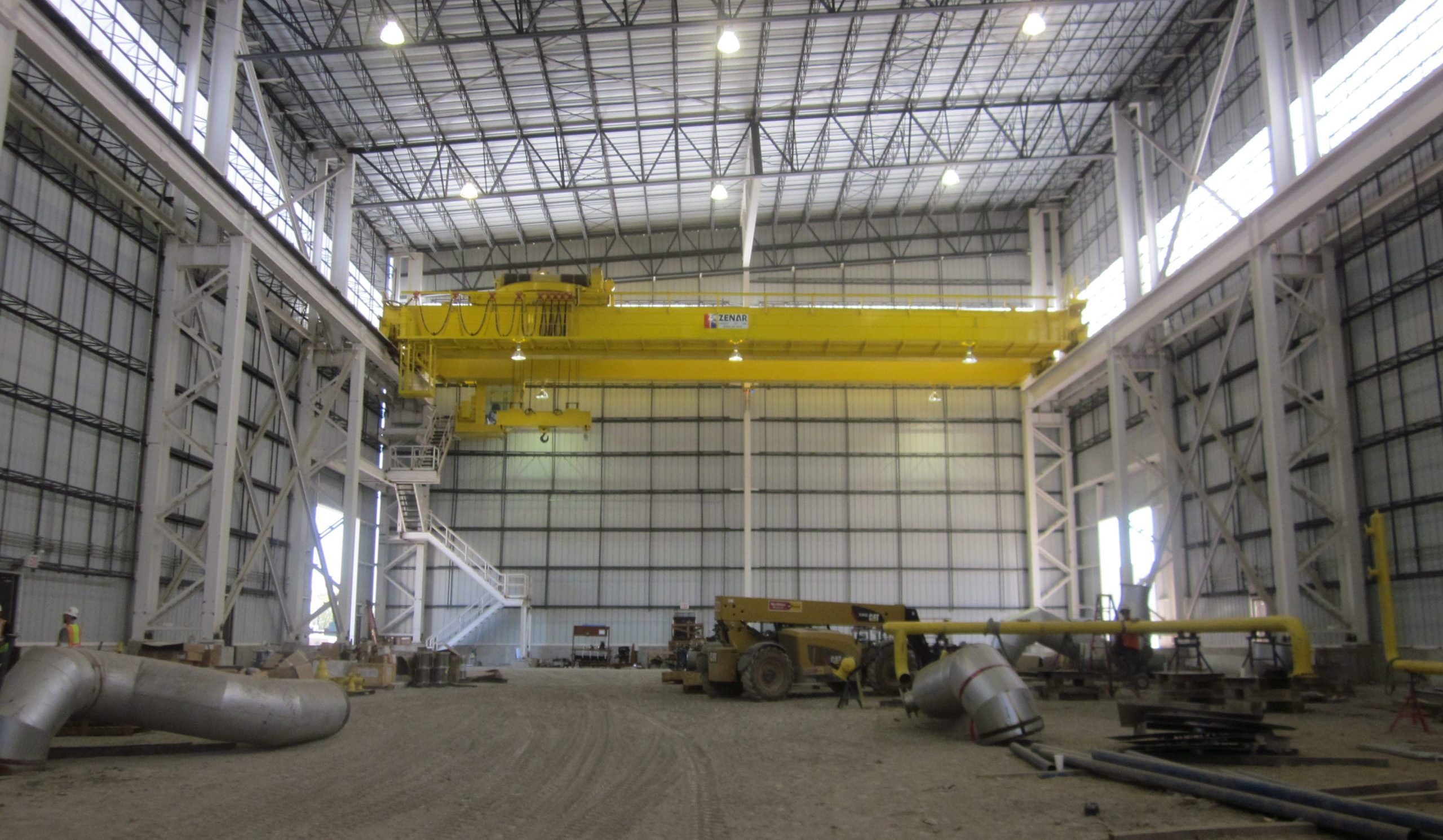The second rolling mill is an 82,000 square foot addition that consists of three crane runway aisles including a steel billet storage area, steel rolling mill line, and a maintenance area to service the rolls used to shape the bar products in the mill. CSD Structural Engineers was hired by SDI to perform the structural engineering for the mill building structure, building foundations, electrical equipment buildings, machinery access platforms, and machinery foundations.
Challenges
Milling stands and equipment in the steel rolling process are subjected to very large horizontal shear forces which then result in equally large overturning moments and uplift forces being applied to the supporting foundations. Resisting forces of these magnitudes can be difficult, especially when the geometry of the piece of machinery that is being supplied constrains the support dimensions. This was the case for the designs of both the vertical mill stands and the Breakdown Mill. For the vertical mills stands, engineering ingenuity and experience were used to design and detail an efficient foundation capable of resisting large magnitude bending moments, torsion, and shear induced by the equipment loads. For the Breakdown Mill Pier, the same approach was used combined with the BIM software REVIT to ensure the design’s bar placement would allow the concrete to flow through the congestion of rebar. It was also important to ensure that the vertical and horizontal pier reinforcement would not interfere with the adjacent horizontal reinforcement which was continuous through the pier.
A design challenge faced for all of the project was the fact that the geotechnical exploration for the project had found the site water table to be at an elevation two feet below that of the mill floor. This presented the biggest challenge when designing the 22 foot deep pit foundation that supported the Reheat Furnace. A three-dimensional model was used to create an efficient design for the pit walls capable of resisting large forces from the hydrostatic pressure from both the earth and water being retained and the surcharge loading from adjacent machinery supporting foundations. The design of the walls and base mat were still sufficient to resist buoyancy forces of the empty pit during construction prior to the installation of the supported machinery.
This project won the 2013 SEA-WI Excellence in Wisconsin Engineering Award for Project over $5 Million.
